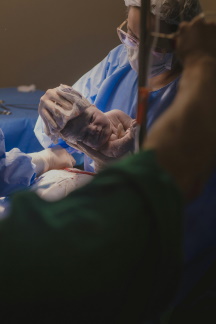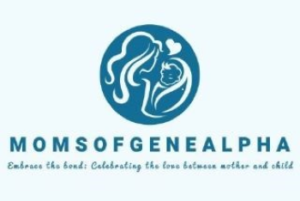
Welcoming a new life into the world is a transformative experience for any mother.
After giving birth, their bodies go through a lot of changes, and they might feel different emotionally too.
Below is a concise overview of the common changes that mothers may experience after giving birth, helping to understand the physical and emotional adjustments during the postpartum period.
| Postpartum Changes | Description |
|---|---|
| Body Shape and Weight | Many mothers experience changes in body shape and weight, including a decrease in belly size and weight fluctuations. |
| Breast Changes | Pregnancy and childbirth can lead to swollen, engorged breasts with changes in size, sensitivity, and nipple appearance. |
| Postpartum Bleeding | Also known as lochia, postpartum bleeding is normal and involves the shedding of the uterine lining over several weeks. |
| Hormonal Changes | Significant hormonal fluctuations occur as the body transitions from pregnancy to postpartum, affecting mood and energy. |
| Emotional Rollercoaster | The postpartum period is characterized by mood swings, irritability, and overwhelm due to hormonal changes and fatigue. |
| Fatigue and Exhaustion | Adjusting to life with a newborn can be physically and emotionally draining, leading to feelings of fatigue and exhaustion. |
| Postpartum Pain and Discomfort | Childbirth can cause various types of pain and discomfort, including perineal soreness, abdominal pain, and breast discomfort. |
| Hair Loss | Postpartum hair loss, or telogen effluvium, is common due to hormonal changes during pregnancy and the postpartum period. |
| Changes in Menstruation | Menstrual cycles may be irregular or absent after childbirth, influenced by hormonal fluctuations and breastfeeding. |
In this comprehensive guide, we will explore the myriad of changes that occur in mothers after giving birth. From physical adjustments to emotional transitions.
Understanding these postpartum changes is essential for new mothers as they navigate the joys and challenges of early motherhood.
Believe it or not, the role of a father during and post-pregnancy is equally important.
Let’s delve into each of these transformations and how they impact the lives of new mothers.
Changes in Body Shape and Weight
After giving birth, many mothers experience changes in their body shape and weight.
This can include a decrease in belly size as the uterus contracts back to its pre-pregnancy size, but it may take time for the body to fully recover.
Hormonal fluctuations, fluid retention, and breastfeeding can also impact weight fluctuations during this time.
Breast Changes
Pregnancy and childbirth can lead to significant changes in the breasts.
Initially, breasts may become swollen and engorged with milk as the body begins producing colostrum and transitional milk.
Over time, breast size may fluctuate as milk production adjusts to the baby’s feeding needs.
Breastfeeding can also affect nipple sensitivity and shape.
Postpartum Bleeding
Also known as lochia, postpartum bleeding is a normal occurrence after childbirth.
This bleeding typically lasts for several weeks and is the body’s way of shedding the uterine lining.
Initially, lochia may be bright red and heavy, but it gradually decreases in flow and changes color to pink or brown before eventually stopping altogether.
Hormonal Changes
Pregnancy and childbirth trigger significant hormonal fluctuations in a mother’s body.
After giving birth, hormone levels shift dramatically as the body transitions from pregnancy to postpartum.
These hormonal changes can affect mood, energy levels, and physical recovery, contributing to symptoms like postpartum blues or depression.
Emotional Rollercoaster
The postpartum period is often described as an emotional rollercoaster, with mothers experiencing a wide range of feelings and emotions.
Hormonal changes, lack of sleep, physical discomfort, and the demands of caring for a newborn can all contribute to mood swings, irritability, and feelings of overwhelm. I
New mothers need to prioritize self-care and seek support when needed.
Fatigue and Exhaustion
Adjusting to life with a newborn can be physically and emotionally exhausting.
Sleep deprivation, round-the-clock feeding sessions, and the demands of newborn care can leave mothers feeling fatigued and drained.
New mothers need to prioritize rest, accept help from loved ones, and delegate tasks to ensure they’re getting the rest they need.
Postpartum Pain and Discomfort
Childbirth can take a toll on the body, leading to various types of postpartum pain and discomfort.
This may include perineal soreness or stitches after vaginal delivery, abdominal pain from uterine contractions, and breast discomfort from engorgement or nipple soreness.
Proper pain management, rest, and self-care can help alleviate these symptoms as the body heals.
Hair Loss
Many women experience postpartum hair loss, also known as telogen effluvium, in the months following childbirth.
This occurs as a result of hormonal changes during pregnancy and the postpartum period, causing hair to transition from the growing phase to the shedding phase.
While hair loss can be alarming, it’s usually temporary and resolves on its own over time.
Changes in Menstruation
After giving birth, it’s normal for menstrual cycles to be irregular or absent, especially for women who are breastfeeding.
Hormonal fluctuations, breastfeeding hormones, and the body’s recovery process can all impact menstrual patterns.
Some women may experience a temporary absence of periods, while others may have irregular cycles or heavy bleeding as their bodies adjust.
While these changes are overwhelming and tiring at first and may seem very hard to cope with please remember the postpartum period is a time of profound change and adjustment for new mothers.
From physical transformations to emotional shifts, each aspect of the mother’s experience after giving birth deserves attention and understanding.
By recognizing and embracing these changes, new mothers can navigate the challenges and joys of early motherhood with resilience and grace.
Remember, seeking support from loved ones and healthcare professionals is essential during this time.
As you embark on this journey, may you find strength, comfort, and fulfillment in the remarkable experience of motherhood.
You can also prepare in advance and we are here to help with tips for pregnancy
Disclaimer: These recommendations are based on my personal experience and observations, and while they may offer helpful suggestions, I am not a medical professional. Always consult with your healthcare provider for personalized advice and care tailored to your individual needs. Wishing you a healthy and fulfilling pregnancy journey ahead!

